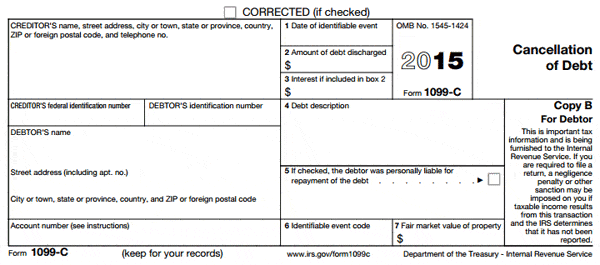
Cancellation of debt (or COD) is the term used to describe a default on your mortgage through a foreclosure, short sale, deed in lieu of foreclosure or some other type of settlement. You may not have to pay the bank, but the money you are forgiven turns into taxable income according to the IRS.
Here's a simple example from the IRS.
- You borrow $10,000.
- You default on the loan after paying back $2,000.
- If the lender is unable to collect the remaining debt from you, there is a cancellation of debt of $8,000.
- The $8,000 debt forgiven becomes taxable income to you.
The bank will send you a 1099-C form that must be included on your taxes, and unfortunately the banks don't explain this so many homeowners ignore this form. Even if you usually do your own taxes, this is one instance where you might be better off getting help.
An accountant with experience in this area, can help determine if you meet the criteria for the 2007 Mortgage Debt Forgiveness Relief Act, which to date, has been extended through 2014 (taxable year).
Cancellation of Debt for Mortgages
The 2007 Mortgage Debt Forgiveness Relief Act temporarily exempted the tax liabilities incurred with cancellation of debt (COD), during the housing downturn in the late 2000's.
According to the IRS, to be eligible (check IRS rules for further qualifications):
- Debt was used to buy, build or substantially improve your principal residence, or to refinance debt for this purpose.
- Debt must be secured by the home.
- The house must be your qualified principal residence.




